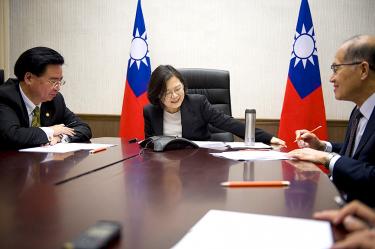Earlier this year, Mega International Commercial Bank’s New York branch was punished with a fine of US$180 million by the US Department of Financial Services for breaching the US Bank Secrecy Act and money-laundering laws. The news shocked the nation.
Taiwan’s Money Laundering Control Act (洗錢防制法) lags far behind international standards: It does not punish unsuccessful attempts at money laundering, touch on criminal liability of legal entities, its regulations on financial inspection and law enforcement are incomplete, penalties for violations are mild and reporting obligations are low. In addition, confiscation powers are inadequate, making it impossible to completely seize illegal profits.












